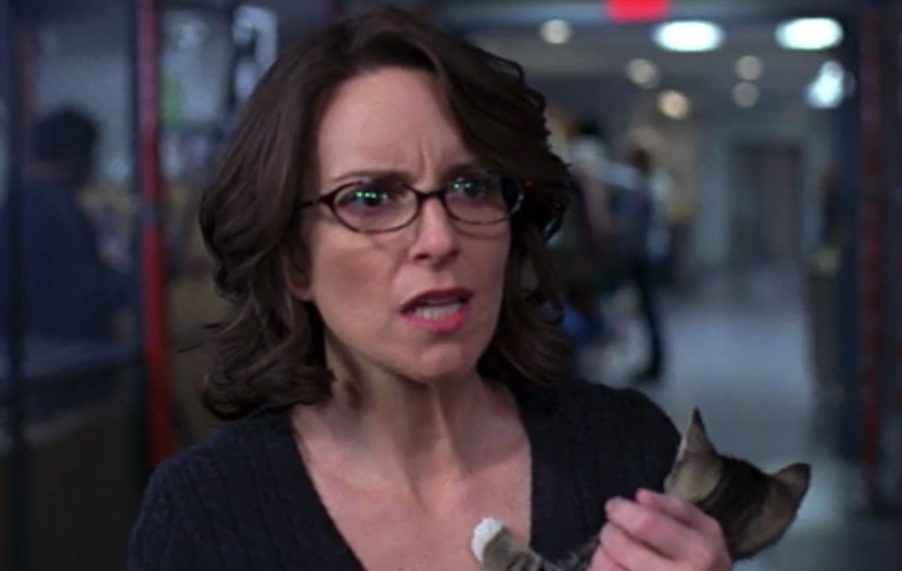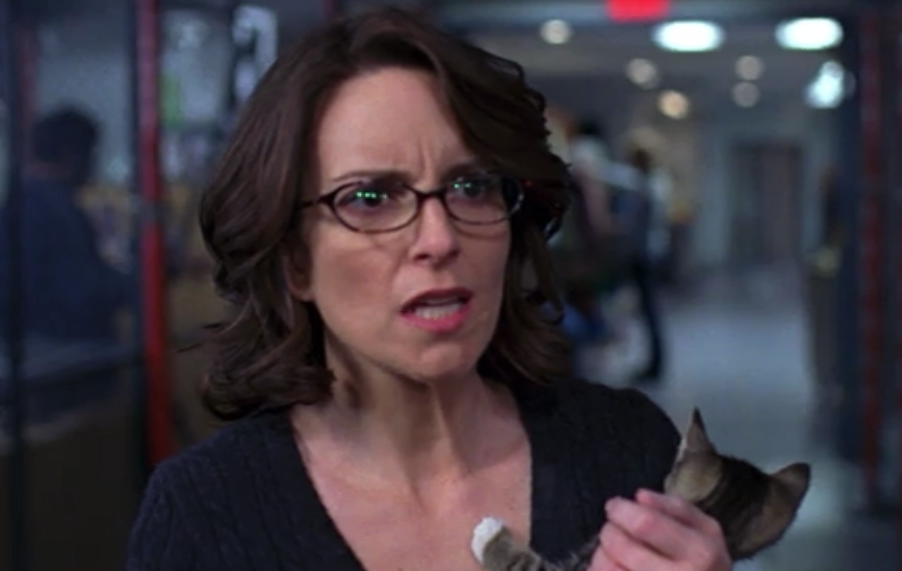
Oh, don’t be coy with me. You know exactly which word I am talking about.
I called my husband right after it happened. I was in tears. “A man called me the baddest word,” I said, sniveling like a little child. Enraged at the outrage of it, and enraged at my own hurt as well.
It’s just a word, I fussed at myself.
No it isn’t, my hurt fussed back.
My husband paused. “Which bad word?” he asked carefully.
“The baddest one,” I said.
Silence.
I amended. “The baddest one for a lady,” I said primly.
What came from my husband’s mouth next was a series of “Oh.”
“Oh,” he said, uttering the “Oh” of comprehension.
“Oh,” he said next, uttering the “Oh” of disbelief.
“OH!” he said finally, uttering the “Oh” of rage.
“Do you want me punch him?” he asked.
“Yes,” I said.
“I probably won’t punch him,” he said. “Plus, we don’t know who he is.”
This was true. It happened on the corner of 46th and Hiawatha, where I had walked through the wind and the cold to get medicine for my dog at the pharmacy. I had a green light and a walk sign. He nearly hit me as he tried to turn illegally through the crosswalk. I jumped backward, and he missed me by inches. I was too astonished to say anything, too terrified to register anything except relief that I wasn’t hurt. He rolled down his window, leaned across the passenger, his face was twisted and angry and hard.
“Get out of the way you stupid c***,” he said.
And then he sped away.
And I walked home, horrified.
I have been called bad names before. Sometimes deservedly so. Sometimes not. But I’ve never been as upset as I was this time around. Now, granted, I was having a rough day (my dog, my dog. everything returns to my dog). And there was the fact of my near-squishing as well. As a person of faith, I’m not particularly afraid of dying, but there is something gravely undignified in a Death By Squishing – by a horrible-looking van driven by a foul-mouthed man, no less. It wouldn’t be my preference is what I’m saying.
But why, though. Why insult the person you almost killed? I have been thinking about this for days, and I can’t figure it out. What is it about fear that makes it harder to be compassionate? What is it about doing something wrong that makes people have a harder time to show care? Why is it so damn hard to say “I’m sorry”?
It did not occur to the driver to check for pedestrians. I get that. It did not occur to the driver that there might be someone crossing in the crosswalk on so cold a day. It was very cold. And it was bright. I get it that mistakes can happen.
But why yell ‘stupid’. And why, why, why that other word. The baddest word. And why does that word hurt me so?
In the 30 Rock episode “The C-Word” Liz Lemon is called it by a petulant employee (the petulantest), and she tries to shake it off, but can’t. In the episode she says, “There isn’t an equivalent insult for a man,” and that isn’t entirely true – men get called “dicks” all the time, which feels like it should be the same, but strangely it is not. Perhaps it is the venom withheld from one word and piled in the other. Perhaps it is our culture’s misogynistic distain for the female body – Francis Grose, in his 1785 A Classical Dictionary of the Vulgar Tongue, defined it as “a nasty word for a nasty thing.” Indeed, even though the word was in popular usage since the 1300’s, it didn’t even show up in any regular English dictionary until 1961, when Webster’s finally decided to use it, helpfully calling it obscene.
It is that, for sure.
Now, it wasn’t always so. Chaucer uses the word playfully in the Cantebury Tales. And Andrew Marvell’s “To His Coy Mistress”, plays with the word, substituting it with “quaint” and lets the reader fill in the blanks. So how did a playful turn on joyful sexuality become the ugliest of insults. Intention? Body hatred? Lady hatred? Maybe all of those things. Maybe we can blame the Puritans. Maybe we can blame mean men in vans.
And I know people who seek to reclaim that word. To use it powerfully, lovingly, playfully. To assert that the nastiness in the word is not emblematic of the thing described, but of the speaker himself. There is no part of me that is nasty, after all. Every part of me is a gift from my Creator, and has in it the spark of the Divine. And I can say that, and I can use that word in my own private conversations and it does not change the fact that the intention of that insult matters. And that ugly talk is ugly talk, no matter how we try to reframe the context of our vocabularies.
There are few words in our language with this much power to shock. And hurt.
Which brings me back to the near-squishing. There is no way this person could think he was in the right and I was in the wrong. There was no way that he could have thought that I actually was stupid for crossing the street. At a crosswalk. With a green light and a “walk” sign. So what is really going on?
He said that word to hurt me. He said that word to belittle me. He said that word to remove my humanity – to make me feel as though I did not have the right to occupy that space, to move across a street in safety in the winter. He said that word to make himself feel better. If my humanity is lessened than the potential harm is lessened too. He said that word to absolve himself. He said that word to remove me from the possibility of compassion. He said that word so as to relieve himself of the bother of caring. He said that word because his power of movement was more valuable to him than mine. He would not have said that word to a man. He likely would not have called him a d***, either. He likely would not have said anything at all. Men have the right to exist, right?
This all happened days ago. Friday, to be exact. And I’ve been stewing ever since. I have been thinking about the things I should have said, and the things I should have done.
“Did you get his license plate,” my mom asked. “Because that was illegal. You were on a crosswalk”
“No,” I said. “I didn’t even think of it. I could only be shocked.”
She shrugged. “I probably wouldn’t have either.”
And maybe that’s why. When words have the power to shock – they have more power than the word itself. They remove the impulse of action from the recipient. They pin us in place.
I hate that. I hate how powerless I felt. I hate that my instinct was to crumple up. I hate that my instinct was to flush and sputter. To feel less than. It is a crummy feeling. The crummiest.
I’m not sure what I want out of this post. Other than to pin this experience to the great bulletin board in the sky. “See,” I say. “This is what happened. This is how I felt. Make of it what you will.”


I love the story and the the bad” word”should not be said, any responsible man will not say that
Sent from my BlackBerry® wireless handheld from Glo Mobile.
i see you kelly . Thanks for putting it all to paper. It helped me get my head on straight about a similar interaction I had (hell we’ve all probably had).
I was nearly run over is a strikingly similar situation, while pushing my daughter in her stroller and walking my dog. I did actually yell at the driver to “get off your damn phone!” and he called me a fat bitch before driving away. I’ve thought it was such a strange way to react to a scary situation, insulting me as a woman. I guess he wasn’t the only one.
I’ve have a few close calls while on my deck, which I always assumed was because I was traveling so fast in a pedestrian space. But the truth is I’ve been on both sides of this. I’ve been the near victim, and the asshole. Either side sucks, but its probably easier for brush off for the driver than it is for the walker. And sadly, punching down is a man thing.
And funny enough I had a lover once who liked to occasion the “C” word. From her lips, and in that narrow context, it was sexy. But its still an ugly word. Rather than use it, or the male version, I adopted a phrase which goes, “you got one, you are one.” And all of this says more about our culture than it does about any individual.
But that guy, he definitely was a dick. And your husband’s response totally nailed it. Good on him.
I am first so sorry that you had to deal with humanity at its lowest…Ironically I was on the receiving end as a driver…In Seattle where walkers have the right away most anywhere…except the one place this person decided to walk in front of my car, dressed in black, on a rainy dark evening…for some reason, I caught a glimpse of a reflection of his shirt and slammed on my brakes. He yelled at me and pounded on my hood like I was doing something wrong by driving down a 3 lane one way road ..and not stopping for him. Never mind the many crosswalks and cross streets that were available not that far away. I can’t imagine the horrible situation of hitting this person …I am sure I said a few choice words in my fear and anger, but there is no excuse for the actions of the driver that almost hit you…take care, be careful and watch out for crazy drivers who are so much more distracted than we realize.
I’m not sure what I want out of this post. Other than to pin this experience to the great bulletin board in the sky. “See,” I say. “This is what happened. This is how I felt. Make of it what you will.”
This is so true for so many of my posts too! But I am glad you shared, it helps one feel that e are not alone in our woes.
P.S.: I (correction : my boobs) get called names all the time by random stranger men as I travel in the Mumbai l=Local Trains. Sometimes in languages I don’t even understand. And each time I am as upset.
In London yobs use the c-word indiscriminately. It definitely wouldn’t be reserved for use against women. But I don’t think it is a bad word at all. Coño in Spanish is a good word. You use it a bit like wow in English: you just ran a marathon? Coño!
I don’t think offering to punch someone is smart or respectful though 😉
I think it really does come down to context and intention. When I lived in Spain, the sweet, grandmotherly lady who owned the house I lived in and made sure she knew all my business (in a loving way, of course), said coño every time she dropped an egg on the counter or marginally overcooked the tortilla. But here in the states, perhaps it isn’t that the word has venom, but it is used with tremendous venom. It is absolutely used to inflict harm and remove humanity here. Which says a lot about us, frankly. And it’s really difficult to imagine that changing.
Ah but there are more kind people than bullies in the world surely… I’m not taking away from your bad experience by the way- I’ve suffered with that kind of aggressive behaviour as well.
To me, what gives a word its force are the intention and the context, both of which, in this case, were meant to be hurtful and cutting. Unfortunately in our culture, several words meant to demean relate to female identity and body parts. Ironic because so many straight men spend so much time thinking about and in pursuit of females and those body parts. Sometimes I wonder if that’s why some men find it so necessary to use those words as tools of degredation. That part of you to which he tried to reduce you with that word holds tremendous power–physically as the source of life, but also emotionally and spiritually. And I can’t help thinking how necessary it is, in a male-dominated culture, to debase those places and that power, to present them as low and filthy when they are anything but that. But most of all, I’m just sorry for what you’ve experienced. It’s been decades since I’ve have had “nigger” directed at me, but I can conjure up the pain of being on the receiving end of it pretty easily. It’s frightening and painful to feel that vulnerable to someone else’s hatefulness. But I try to remember that the thing that makes me vulnerable (my dark skin, my racial and cultural heritage) is also such an important source of my identity and power. I don’t celebrate the word; but I do celebrate with pride the history to which it refers. I think about other people who’ve been called that word and the company their insult puts me in, and I’ve found that somehow that helps, if not with immediate pain, then with how I go forward. But I’m so sorry you were on the receiving end of such a hateful intention.
I don’t like the C word either. Guys can be prats, bar-stewards and idiots, and if they drive a big car, then I always think Big Car, Small Dick. 🙂
Awesome article… “C” is my least favorite world in the universe. My ex-husband cursed like a drunken sailer, he usually was drunk. He used every offensive word in creative hurtful ways. BUT he never, ever used the “C” word. I’m not giving him a gold star but It was the one abusive word I didn’t hear. Not only do I not want to hear the “C” word, I don’t want the word to come out of my mouth. I am streetwise and I have favorite swear words. My choice of swear words depend upon the company of people I am with. Thanks for sharing this story.
I am so sorry you had that scary experience, Kelly. The driver was a jerk who, I hope, drove himself into a brick wall. No sympathy for him here!
Thank you for keeping this topic alive. I sometimes think that misogyny is becoming more invisible, more insidious, gaining in power in our culture. Because domination of the female is so deeply embedded in our language, so ideological we need to keep talking about it.